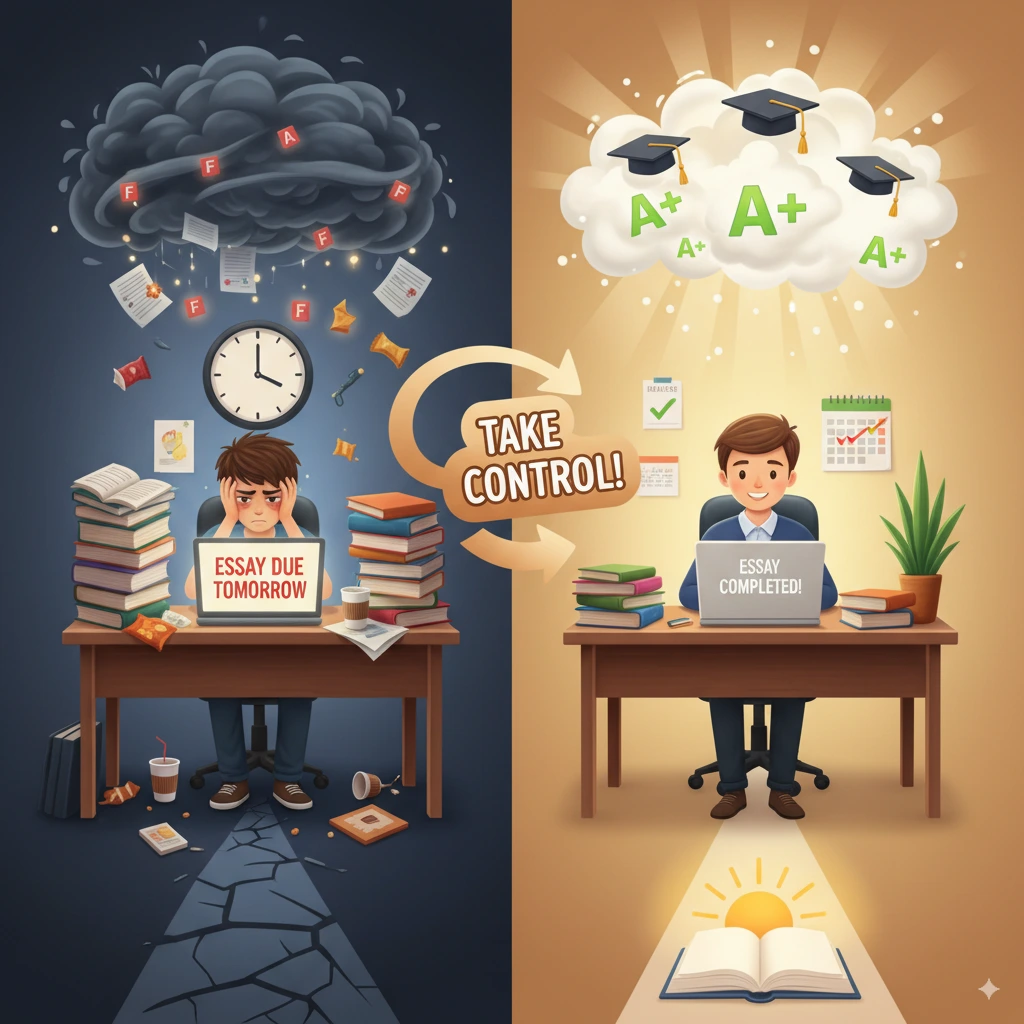


Procrastination is a widespread behaviour in students, which influences the results of their studying and the general state of well-being. Though it might appear that it is a minor problem initially, the negative effects of procrastination on students may have a long-term reflection on the grades, mental condition, and overall performance of students. The article will examine the negative effect of procrastination on students, the reasons behind procrastination and the action that students can take to end procrastination and result in better academic results.
Procrastination is the act of delaying or postponing tasks despite knowing that doing so may have negative consequences. For students, this often manifests in putting off studying, completing assignments, or preparing for exams until the last possible moment. It might feel like a temporary escape from tasks, but procrastination can have serious academic and psychological effects.

The negative effects of procrastination on students are wide-ranging, impacting their academic success, emotional health, and even future prospects. Let’s explore these effects in detail
One of the most immediate and obvious effects of procrastination is its impact on students’ academic performance. When students delay their studies or assignments, they often rush to complete work at the last minute, leading to lower-quality results.
Procrastination doesn’t just affect academic performance—it also negatively impacts students’ mental health. The negative effects of procrastination on students often manifest in heightened stress and anxiety.
Procrastination, especially when it becomes a habit, can hinder students from developing crucial time management and organizational skills.
Over time, procrastination can erode a student’s self-confidence. This can occur due to repeated experiences of failure or low performance caused by poor time management.
While the effects of procrastination are often discussed in terms of academic performance and mental health, they can also take a toll on students’ physical health.

Understanding why students procrastinate is the first step in tackling this issue. Several factors contribute to procrastination:
A common cause of procrastination is the fear of failure. Many students delay tasks because they are afraid of not performing well or meeting expectations. This fear often causes them to avoid starting tasks altogether, which only makes the problem worse.
If students don’t find a particular task interesting or rewarding, they may procrastinate. Tasks that feel tedious or overwhelming are often put off in favor of more enjoyable activities.
Students who are perfectionists often procrastinate because they want everything to be flawless. This desire for perfection can lead to delays as they continuously tweak and refine their work instead of finishing it.
Many students struggle with managing their time effectively. Without proper planning, students may fail to allocate enough time for each task, causing them to procrastinate and rush to finish their work at the last minute.
Procrastination is often a result of a lack of self-discipline. Students may have difficulty resisting the urge to engage in distractions, such as social media or watching TV, instead of focusing on their studies.

While procrastination is a common issue, it’s not insurmountable. Students can take several steps to overcome procrastination and improve their academic performance. Here are some practical tips to help students break the cycle of procrastination:
Setting clear, achievable goals is essential for staying on track. By breaking large tasks into smaller, manageable pieces, students can avoid feeling overwhelmed and reduce the urge to procrastinate.
Effective time management is key to overcoming procrastination. Students should learn how to prioritize tasks and manage their time wisely.
Students should confront their fear of failure by shifting their mindset. It’s important to understand that failure is a natural part of the learning process and can provide valuable lessons for future success.
Minimizing distractions is essential for staying focused and productive. Students can use various strategies to create a conducive environment for studying.
Students can reduce procrastination by building healthy habits that promote better time management and mental well-being.
Sometimes, procrastination is a sign that a student is struggling with the material or feeling overwhelmed. In such cases, it’s important for students to seek help.
The negative effects of procrastination on students are profound, affecting their academic performance, mental health, and overall well-being. Understanding the causes of procrastination and recognizing its consequences are essential first steps in overcoming this habit. By adopting effective time management techniques, setting clear goals, and confronting the underlying fears that lead to procrastination, students can improve their focus, reduce stress, and enhance their academic success. With consistent effort and the right mindset, it is possible to break the cycle of procrastination and achieve long-term academic and personal growth.
